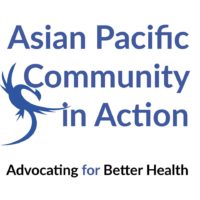
Asian Pacific Community in Action is working to make the AANHPI community visible in Arizona
Editor’s note: This post is part of an ongoing series of posts featuring NCRP nonprofit members.
 Seeing is believing – a nice proverb, but also an often unsaid maxim for philanthropic giving. After all, if a would-be funder can’t see a problem or isn’t aware of its impact, how can she be expected to buy into potential solutions?
Seeing is believing – a nice proverb, but also an often unsaid maxim for philanthropic giving. After all, if a would-be funder can’t see a problem or isn’t aware of its impact, how can she be expected to buy into potential solutions?
So what’s a willing advocate to do when a community faces systemic adversity that could benefit from philanthropic investment, but is too new and too dispersed to speak at a volume funders can hear?
This is the predicament Asian Pacific Community in Action (APCA) finds itself in. Founded in 2002, APCA seeks to foster greater health and empowerment for the two fastest growing populations in Arizona: Asian-Americans and Native Hawaiians/Pacific Islanders (AANHPI). It does so through a combination of services, advocacy and education.
APCA has enrolled community members in health insurance plans and educated them about preventative care. It has championed language access in the health insurance marketplace, resulting in some translations of various insurance notices. APCA staff and volunteers occupy key leadership positions in the governing councils of county health clinics and hospitals, city commissions and chambers of commerce.
Yet there is still a long way to go.
Nearly every one in 20 persons in Arizona is a member of an AANHPI community. But, because most of them arrived only in the 1990s or 2000s and settled into areas sequestered from the rest of the population, they remain invisible to the public eye.
There is no Chinatown or Little Korea to help center these disparate locations. Other standard community infrastructure, like legal and housing services, are not yet developed. The Arizona Department of Health doesn’t even collect Asian-American data, instead cramming it into an ill-defined “other” category.
The needs of a Chinese-American whose family has been here for four generations are plainly different than those of a recently arrived Myanmar refugee, but if the health department doesn’t disentangle the responses of the former from the latter, how are health care providers to know who needs what?
Problems like this pushed APCA to progress from a strictly outreach and health access portfolio to a broader emphasis on community organizing. APCA now registers people to vote and educates community members on how issues affect them, how a bill becomes law and how to connect with lawmakers to ensure they are meeting the AANHPI community’s needs.
In 2016, APCA launched the first Asian-American Pacific Islander Advocacy Day. At the state capitol in Phoenix, about 20 community members were directly connected with their elected officials. The following year, the organization helped introduce a data disaggregation bill that would have collected and separated out Asian-American data. It wasn’t passed, but APCA did get a resolution read on the Senate floor, introducing the issue to many legislators for the first time.
APCA has committed to building out space for a coalition of community health workers, faith leaders and health professionals to work together around shared issues in the AANHPI community.
Take oral health, for instance. APCA has designed a community organizing and advocacy training program that brings in oral health providers serving communities of color to talk about social determinants in health and what’s happening in the state legislature around the issue.
APCA is not an organization that wants to exist in perpetuity. As more and more members of the AANHPI communities see the value in civic engagement and seize the collective power available to them, APCA would victoriously grow obsolete.
In the meantime, APCA could use some help. General operating support would jumpstart its efforts to connect with the growing number of AANHPI individuals in the state and help as it recruits leaders from each set of the 60-plus different languages and cultures therein to guide its approach until the communities united are ready to stand on their own.
Beyond funding general operation, there are specific programmatic areas awaiting support too. APCA would like to resurrect a dormant interpreter service to help its constituents navigate a language and culture in which they’re not yet proficient. Alternatively, the organization has collected a trove of data and stories from the Arizonan AANHPI communities; it could use additional funding to hire a staffer to sift through all of this information.
The Asian-American, Native Hawaiian and Pacific Islander communities in Arizona are no longer hidden. Their individual experiences may vary, but their expertise in their communities does not. Funding in the long-run should capitalize on this insider knowledge and let it guide future research and community action. In the end, seeing isn’t just believing; it’s doing.
Troy Price is NCRP’s membership and fundraising intern. Follow @NCRP on Twitter.
Image by Rob Young. Used under Creative Commons license.